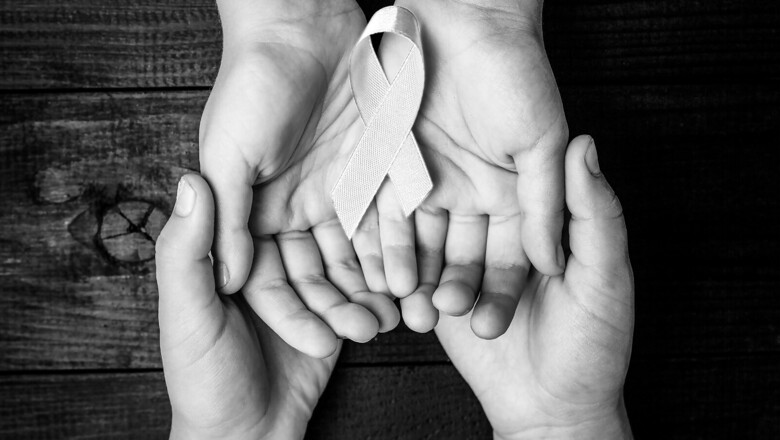
views
Sex may permeate our popular culture, but conversations about it are still associated with stigma and shame in Indian households. As a result, most individuals dealing with sexual health issues or trying to find information about sex often resort to unverified online sources or follow the unscientific advice of their friends.
To address the widespread misinformation about sex, News18.com is running this weekly sex column, titled ‘Let’s Talk Sex’, every Friday. We hope to initiate conversations about sex through this column and address sexual health issues with scientific insight and nuance.
The column is being written by Sexologist Prof (Dr) Saransh Jain. In today’s column Dr Jain busts myths around HIV and stresses on taking the HIV test.
You’ve probably heard a lot about how HIV is transmitted. However, there are only a few ways through which you can get HIV (human immunodeficiency virus). Unfortunately, there are a lot of myths regarding HIV transmission, which end up creating confusion.
Instead of worrying about HIV, learn how it’s transmitted and what you can do to protect yourself. It’s normal to worry about HIV testing, but testing is the only way to be sure whether or not you have the virus. If you think you’ve put yourself at risk, or you’re at risk because of your situation, get tested.
People often don’t take the HIV test because they’re worried what would happen if they test positive and what would others think. Remember:
• HIV tests are quick and simple.
• Testing puts you in control of your sexual health.
• If you test positive, you can start your treatment immediately and go on to live a long, healthy life.
How can you get HIV?
HIV is found in the bodily fluids of someone living with the virus, which includes blood, semen and pre-seminal fluid (‘pre-cum’), rectal fluids/anal mucous, vaginal fluids and breast milk. The primary ways in which you can get HIV are:
• Sex without a condom
• Sharing injecting equipment
• Passed from mother to baby during pregnancy, childbirth and breastfeeding
• Contaminated blood transfusions and organ/tissue transplants
How can you protect yourself from HIV?
There are a number of ways through which you can protect yourself, including:
• Use a condom every time you have vaginal, anal or oral sex
• Avoid sharing needles, syringes and other injecting equipment
• Undergo HIV treatment if you are a new or an expectant mother living with HIV, as this will dramatically reduce the risk of passing HIV to your baby during pregnancy, childbirth and breastfeeding
• Ask your healthcare professional if the blood transfusion, organ or tissue transplant has been tested for HIV
• Take precautions if you are a healthcare worker; wear protective gear (like gloves and goggles), wash hands after contact with blood and other bodily fluids, and safely dispose sharp equipment.
Don’t worry about what others will think
A lot of people worry what it would mean if they tested positive—and what others would think. Just the thought of going to a clinic, or someone seeing them go to a clinic often stops many from going for HIV testing. It’s important not to let fear get in the way of your health. Sometimes friends and family’s negative attitude and ignorance towards HIV and other STIs (sexually transmitted infections) can lead to someone not getting tested.
Once you know the facts about HIV, you’ll feel more confident about ignoring or even correcting people’s misconceptions. Remember, HIV is treatable but only if you know you’ve got it—and the only way to know is to get tested. Testing regularly puts your mind at rest, and keeps you in control of your sexual health.
If you test negative, don’t let your guard down. Keep following the basic hygiene measures. If you test positive, you can undergo treatment to stay healthy—this also reduces the risk of HIV transmission to your partner.
The most difficult situation is when you don’t know that you are HIV-positive. This means you are not getting timely treatment and support that you need. Even if you don’t have the symptoms, your immune system will start deteriorating and eventually you’ll fall sick.
Testing positive for HIV is not the end of the road. Forget what others think, your health is more important. Put your health first and get tested for HIV.
Read all the Latest Lifestyle News here
















Comments
0 comment